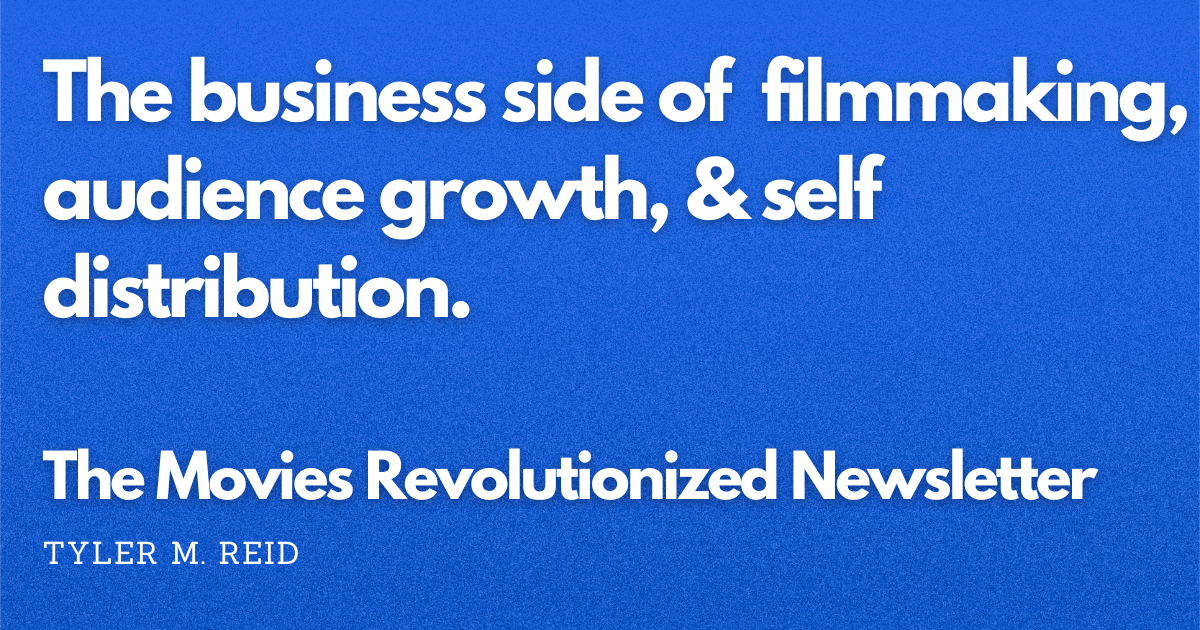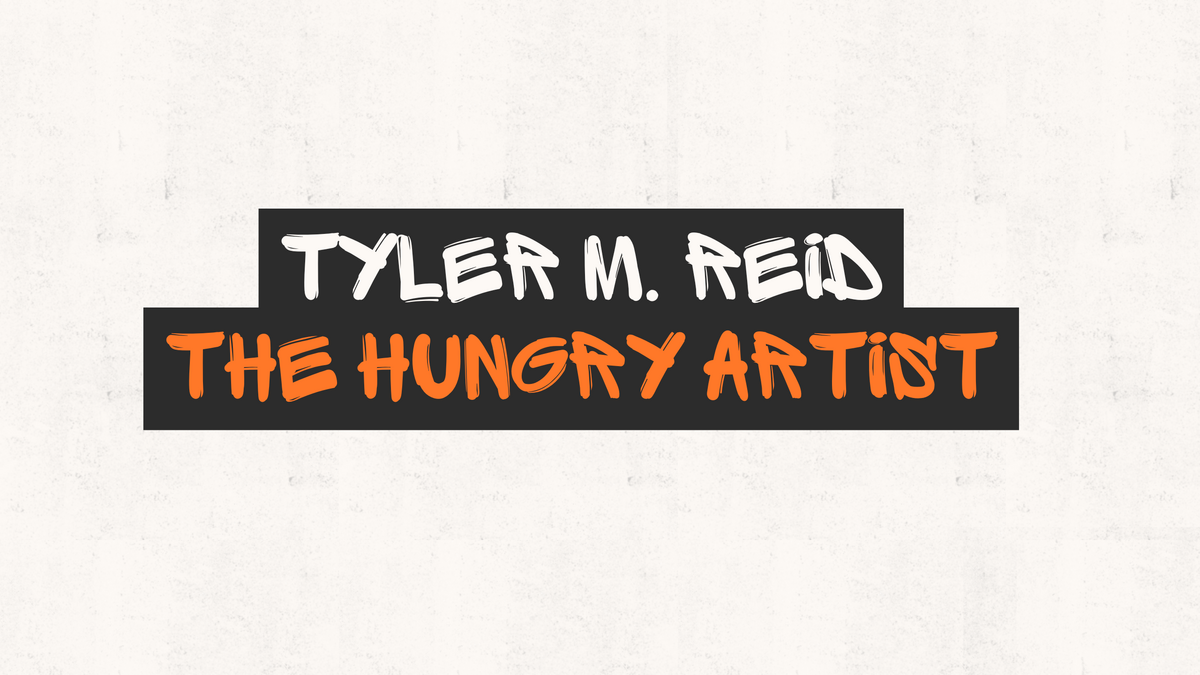Treat each film like a start up.
You may have heard this before. It makes sense, a film is a business. It starts as an idea, you need to raise money, hire people, make a product, market that product, then sell that product. Honestly, it's probably one of the most entrepreneurial endeavors that exists in the startup world.
Here is how you go about treating your film like a startup.
Just like a startup has a clear vision and mission statement, you should articulate what your film aims to achieve, its core themes, and its unique selling points. This is both great for you as the filmmaker but also all of that information can be used in other material like in your film business plan, or your pitch deck.
Everyone’s goal is different even though they are very related. Everyone wants someone to see their film and everyone hopes to make money from their film. Some people will have the connections to get their film to big theatrical screenings, and some people are hoping to get it on AVOD to get some views and earn a little money just to get to the next film.
So when I say figure out what you aim to achieve, I mean that very specifically. Really know what it is you want from this film, it will help you strategize the different steps you will need to take to get there.
The Business Plan
Once you have figured out what your main goal with the film is then you will need to start creating material that will help you get to that main goal. I always believe creating a film business plan is a great route to take, even if you don’t plan on raising money from investors. This material could help you find sponsors or grants or even strategize your crowdfunding campaign. You should create a film business plan for your film, outlining budgets, schedules, and distribution strategies. You can download a free business template here.
Startups Need Money
Like startups seeking investment, you need to explore various funding sources, such as grants, crowdfunding, private investors, or partnerships(think local sponsors), to secure the budget for your film.
Making a movie isn’t free. At first, it can be very challenging to figure out how to raise money. There is a lot of money out there and you can find it in all kinds of ways like I listed above. What I think is the first best route is to figure out the smallest amount you can make your movie for. Some of the easiest ways to do that is figure out what locations, props, wardrobe, and other items you can get for free. Finding all of those items alone could save you 10-15% of your budget. Any savings is a savings, because that is now money that you do not need to raise.
Know Your Audience
The best way to think of your audience is how a startup would think of them.
Audience = Customer.
Understanding your target audience is crucial! For example if you are making a horror film, maybe its a super gory horror film, you may want to look at how past gory horror films have done, maybe they are even on the rise again (hint - they are) As an example I would use Stephen Follow’s Horror Movie Report as a way to get data on my audience. Not only is this great for you to know but it is information you could use when seeking money for your film. You can show a sponsor or an investor some data and charts that prove your film could have an audience, thus make money.
Branding is Connecting
Startups aim to create some kind of association with their company by their customers. That is what branding is. You should also create a strong brand for the film, with items like a compelling poster, trailer, and online presence. You should also strongly use social media, websites, and email marketing to build anticipation and engage with your audience. This is not something that should be held off until after the film is complete. At minimum building awareness around your film early on can help it gain traction and a following. If you know you are going to make your film 6 months from now, you should be talking about it online starting today, even if you are just in the early stages of trying to find money. Let people know your film exists many month prior to its release.
Look at Marvel they talk about films they are going to release years from now, and as we have seen many times, things change and films they said they were going to make, they decide not to make, but that doesn’t matter. The goal is to just create awareness at first. So it’s okay to talk about a film even if its in the earliest of stages.
Your Network Is Key
Just as startups thrive on partnerships and networking, your should actively seek collaborations with other creatives, industry professionals, and influencers to enhance your project and broaden its reach. (https://tylermreid.beehiiv.com/p/connections-matter-resume)
Not only can you find great collaborators but that network may also help you get your film in front of the right people, maybe its a sales agent, an investor, or a distributor. Growing your network while creating your film can be very powerful for your.
Distribution is Last but It’s First
So many filmmakers think about distribution at the beginning but then never really do anything to set it up until the film is nearly finished or completely finished. You should be planning out your distribution from the beginning and constantly adapting all the way through until the moment the film is released. Also, during that time you can be figuring out merchandise and other products besides the film that will make you money. It’s good to look at various ways to make a revenue off of the film that is not just based on the film its self.
A favorite article is about how to tour your film like a band. In that article I write about different ways to make money from the screening of the film that isn’t just from ticket sales.
It’s good to look at traditional ways to make money but also think outside of the box, and this should start as early as possible. When you are developing your film at the same time you need to be developing the distribution and revenue earning strategy for your film too.
Is it a Hobby or a Business
The difference between an amateur and professional filmmaker is whether you treat filmmaking like a hobby or a business.
If you are treating it like a business then you also need to make sure you have all the proper contracts, agreements, and paperwork in order. I recommend consulting with legal advice when you sign any document or if you ask someone to sign one of yours.
Treat your film like a startup because when it succeeds it can give you a long career of making more films.
There are two ways I can help you.
I give away a free bundle with example pitches, templates, and interactive budgets that you can grab right here.
If you are on your journey to make your first short film, documentary, or even micro budget feature, this course is designed to help you find money, grow your audience, and earn an income.


